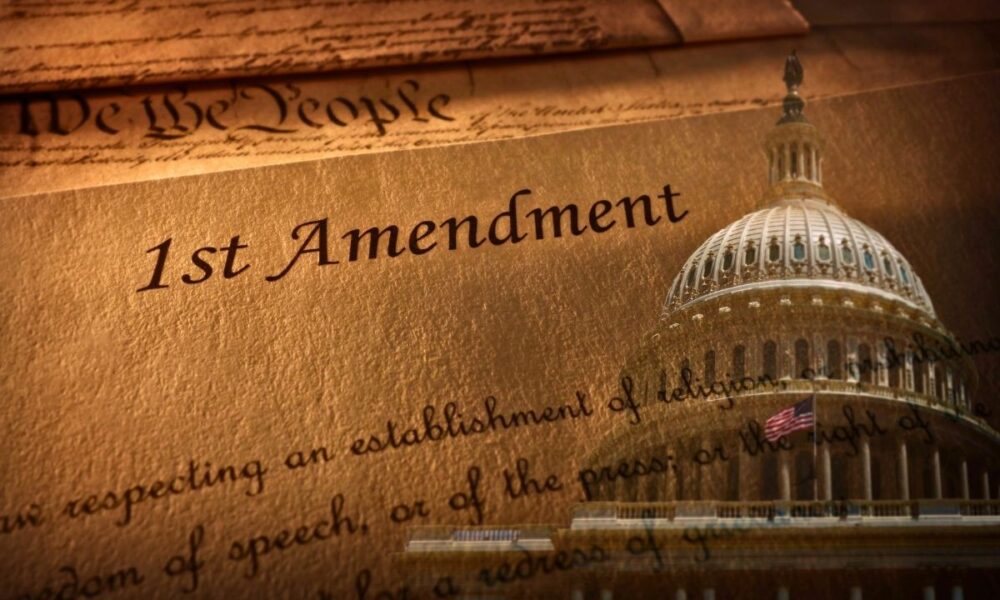The U.S. Supreme Court on Monday declined to take up a high-profile First Amendment case involving a Massachusetts public school teacher who was fired for making controversial social media posts before she was hired.
The justices turned away Kari MacRae’s appeal, letting stand a lower court ruling that upheld her termination by Hanover Public Schools and found that her firing did not violate constitutional free speech protections.
MacRae, who is now running for the Massachusetts state Senate as a Republican, had sued the district for monetary damages, claiming retaliation for her political views after she was dismissed in 2021 following the discovery of a series of posts on her TikTok account.
THE BREAKDOWN:
-
The Court declined to hear MacRae’s First Amendment challenge after her firing for social media posts made prior to employment.
-
School officials cited memes they said contained “themes of homophobia, transphobia and racism.”
-
A federal judge and appeals court ruled the school acted lawfully and that the officials were protected by qualified immunity.
-
Justice Clarence Thomas concurred with the Court’s denial but signaled he hopes to revisit similar issues in the future.
According to court filings, the posts included memes she posted, reposted, or liked were laden with gendered or racial themes. One featured Rachel Levine, a transgender former federal health official, with mocking text. Another showed a bearded man in a sports bra with the caption: “Hi my name is Meagan, I’m here for the Girl’s track meet.” A third featured a panda saying, “Dude, racism is stupid. I am black, white, and Asian. But everyone loves me.”
All of the content was posted before MacRae began working at Hanover High School as a math and business teacher. The district terminated her about a month into her employment, citing the likelihood that her continued presence “would have a significant negative impact on student learning,” per the Associated Press.
MacRae’s counsel argued that her termination violated a key precedent set in Pickering v. Board of Education (1968), in which the Supreme Court held that public employees retain the right to speak on matters of public concern. However, the federal district court—and later the 1st U.S. Circuit Court of Appeals—ruled that the school district was justified in its actions given the risk of disruption and also protected by qualified immunity, The Advocate reported.
In a brief comment attached to the Court’s denial, Justice Clarence Thomas indicated that although he agreed with the outcome, he would like to clarify in a future case how much public employers can rely on precedents like Pickering to penalize expression “of disfavored political views.”
Judicial Watch, the legal group that represented MacRae, sharply criticized the Court’s refusal to hear the case.
“Let’s cut to the chase: Kari MacRae was fired because she spoke out against woke critical race theory before she was hired,” Judicial Watch President Tom Fitton said. “The Supreme Court’s decision not to take up her case is a missed opportunity to uphold the First Amendment.”
This is the second time in recent weeks that the Supreme Court has declined to intervene in a free speech case involving Massachusetts schools.
In late May, the Court declined to hear L.M. v. Town of Middleborough, a case brought by Liam Morrison, a student who was barred from wearing a T-shirt stating “There are only two genders,” The Dallas Express reported.
In that case, Justices Thomas and Samuel Alito dissented, warning that schools may be selectively censoring viewpoints. Alito called the issue “of great importance for our Nation’s youth,” while Thomas reiterated that Tinker v. Des Moines—the 1969 precedent protecting student political speech—remains binding law.
The MacRae and Morrison denials suggest a growing tension between modern cultural debates and long-standing First Amendment protections.
While these decisions do not set national precedent, they allow lower court rulings to remain in force. For free speech advocates, both outcomes signal a reluctance on the part of the current Court to expand protections in schools, even as dissenting justices continue to voice concerns over what they see as ideological censorship.


